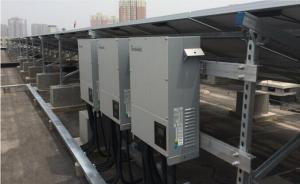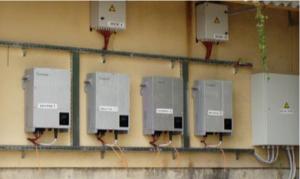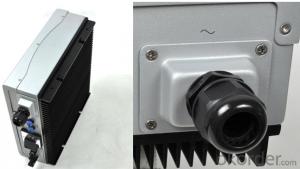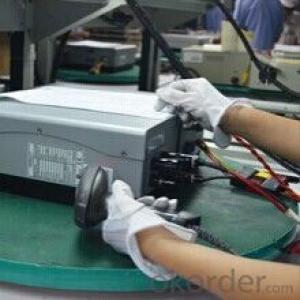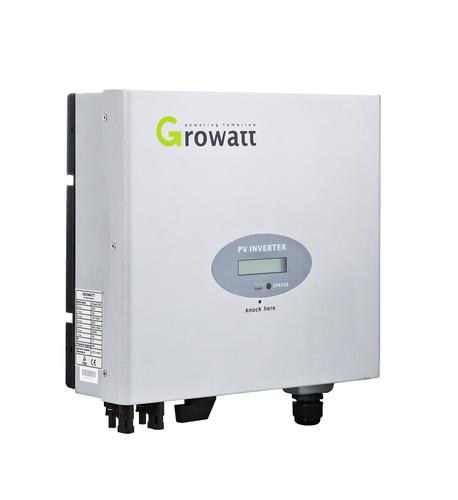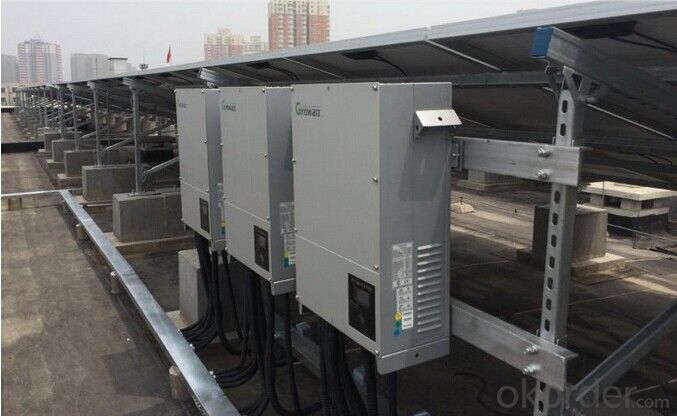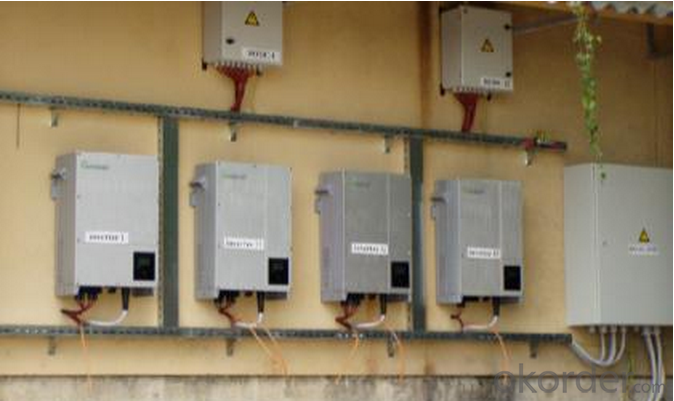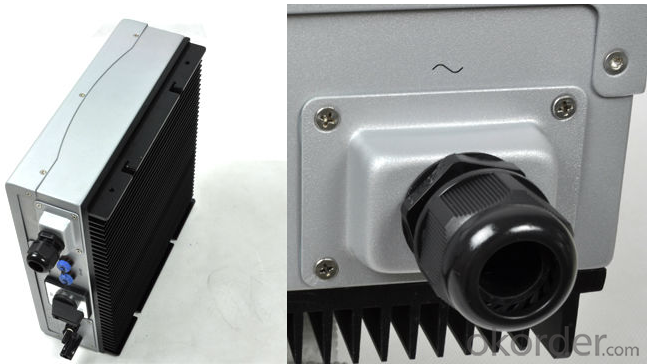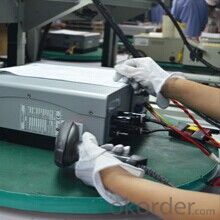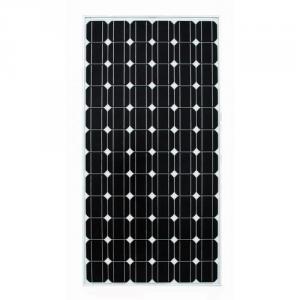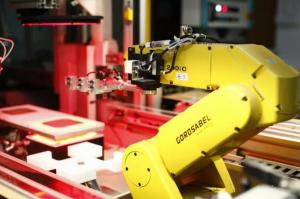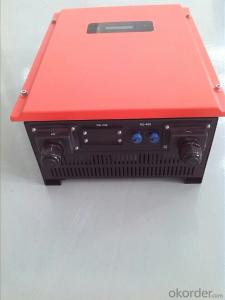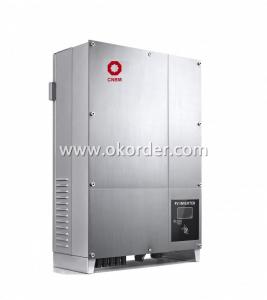Solar Power Inverter 1000W-3000W Grid Tie Solar Inverter
- Loading Port:
- Shekou
- Payment Terms:
- TT or LC
- Min Order Qty:
- 10 pc
- Supply Capability:
- 100000 pc/month
OKorder Service Pledge
OKorder Financial Service
You Might Also Like
Solar power inverter 1000W-3000W grid tie solar inverter
Specifications
Maximum efficiency 97.8%, wide input voltage range
Internal DC switch
Transformerless GT topology
Compact design
1500 2000 3000 4400 5000TL
General Descriptions
Leading-Edge Technology, CE,TUV ,VDE , SAA,DK5940 Certicificates.
> Maximum efficiency of 97.8 % and wide input voltage range
> Internal DC STWTICH
> Transformerless H6 topology
> Compact Design
> MPPT control
> MTL-String
> RS485 RS432 bluetooth Technology
> Comprehensive Growatt warranty program
> Easy country configuration, easy installation
> Multi-language display
Communications
> RS485 /GPRS interfaces
> Computer monitoring software
Safety
> Full protection functions:DC reverse polarity, AC short-circuit protection, ground fault monitoring, grid monitoring, integrate all-pole sensitive, leakage current monitoring unit.
> Standards complied: EN61000-6-1, EN61000-6-2, EN61000-6-3, EN61000-6-4,EN61000-3-2, EN50178, VDE0126-1-1,IEC-62109
FAQ
1. Have any design tool and how to use it?
Shine Design is the system design software just for inverters, It can conduct installers to figure out panel numbers for a system, panel numbers for each string, and which inverter model is suitable for the system. Moreover, it can print a design report after input all necessary parameters, can calculate DC/AC wire wastage, annual generation, etc.
2. Does the inverter have monitoring solutions for residential system?
For small rating system, we have wired two monitoring solution (ShineNet via RS232 or RS485). (a) Local wireless monitoring solution (ShineVision via RF module communication) (b) Global wireless monitoring solution (WIFI module via WIFI network)
3. Do you have free solution for monitoring?
ShineNet is an inverter monitoring software run in Windows XP, Windows Vista, Windows 7 operating system. It can monitor inverter via RS232 (or RS232 convert to USB cable) and RS485 wire connection. Customers can purchase the cable locally to get the inverter monitored, it is simple.

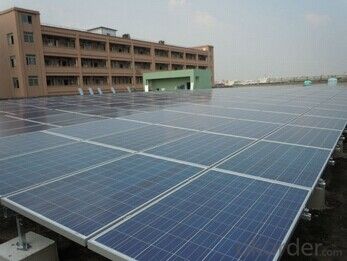
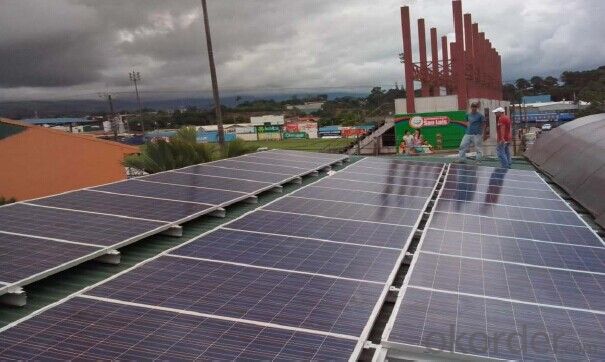
Technical Specifications
Model Specifications | 1500 | 2000 | 3000 | 4000 | 4400 | 5000 |
Input data(DC) | ||||||
Max. DC power | 1800W | 2300W | 3200W | 4200W | 4600W | 5000W/5200W* |
Max. DC voltage | 450V | 500V | 500V | 580V | 580V | 580V |
Start voltage | 150V | 150V | 150V | 150V | 150V | 150V |
PV voltage range | 100V-450V | 100V-500V | 100V-500V | 100V-580V | 100V-580V | 100V-580V |
MPP work voltage range/ nominal voltage | 120V-450V/360V | 120V-500V/360V | 120V-500V/360V | 120V-580V/360V | 120V-580V/360V | 120V-580V/360V |
Full load dc voltage range | 175V-450V | 195V-450V | 250V-450V | 250V-500V | 250V-500V | 250V-500V |
Max. input current | 10A | 12A | 15A | 20A | 20A | 20A |
Max. input current per string | 10A | 12A | 15A | 20A | 20A | 20A |
Number of independent MPP trackers /strings per MPP tracker | 1/1 | 1/2 | 1/2 | 1/3 | 1/3 | 1/3 |
Output (AC) | ||||||
Rated AC output power | 1600W | 2000W | 2850W | 3680W | 4200W | 4600W |
Max. AC power | 1650W | 2200W | 3000W | 4000W | 4400W | 4600/5000W* |
Max. output current | 8A | 11A | 15A | 16A | 21A | 22.7A |
AC nominal voltage; range | 220,230,240V; 180Vac-280Vac | 220,230,240V; 180Vac-280Vac | 220,230,240V; 180Vac-280Vac | 220,230,240V; 180Vac-280Vac | 220,230,240V; 180Vac-280Vac | 220,230,240V; 180Vac-280Vac |
AC grid frequency; range | 50,60H;±5 Hz | 50,60H;±5 Hz | 50,60H;±5 Hz | 50,60H;±5 Hz | 50,60H;±5 Hz | 50,60H;±5 Hz |
Power factor | 1 | 1 | 1 | 1 | 1 | 1 |
THDI | <3%< p=""> | <3%< p=""> | <3%< p=""> | <3%< p=""> | <3%< p=""> | <3%< p=""> |
AC connection | Single phase | Single phase | Single phase | Single phase | Single phase | Single phase |
Efficiency | ||||||
Max. efficiency | 97% | 97% | 97% | 97.8% | 97.8% | 97.8% |
Euro weighted efficiency | 96.5% | 96.5% | 96.5% | 97.4% | 97.4% | 97.4% |
MPPT efficiency | 99.5% | 99.5% | 99.5% | 99.5% | 99.5% | 99.5% |
Protection devices | ||||||
DC reverse polarity protection | yes | yes | yes | yes | yes | yes |
DC switch rating for each MPPT | yes | yes | yes | yes | yes | yes |
Output over current protection | yes | yes | yes | yes | yes | yes |
Output over voltage protection-varistor | yes | yes | yes | yes | yes | yes |
Ground fault monitoring | yes | yes | yes | yes | yes | yes |
Grid monitoring | yes | yes | yes | yes | yes | yes |
Integrated all - pole sensitive leakage current monitoring unit | yes | yes | yes | yes | yes | yes |
General Data | ||||||
Dimensions (W / H / D) in mm | 360/329/132 | 360/329/132 | 360/329/132 | 406/406/192 | 406/406/192 | 406/406/192 |
Weight | 11.5KG | 11.7KG | 12.2KG | 21KG | 21KG | 21KG |
Operating temperature range | –25°C ... +60°C (-13...+140°F) with derating above 50°C /122°F | –25°C ... +60°C (-13...+140°F) with derating above 50°C /122°F | –25°C ... +60°C (-13...+140°F) with derating above 50°C /122°F | –25°C ... +60°C (-13...+140°F) with derating above 50°C /122°F | –25°C ... +60°C (-13...+140°F) with derating above 50°C /122°F | –25°C ... +60°C (-13...+140°F) with derating above 50°C /122°F |
Noise emission (typical) | ≤ 25 dB(A) | ≤ 25 dB(A) | ≤ 25 dB(A) | ≤ 25 dB(A) | ≤ 25 dB(A) | ≤ 25 dB(A) |
Altitude | 2000m(6560ft) without derating | |||||
Self-Consumption night | < 0.5 W | < 0.5 W | < 0.5 W | < 0.5 W | < 0.5 W | < 0.5 W |
Topology | transformerless | transformerless | transformerless | transformerless | transformerless | transformerless |
Cooling concept | Natural | Natural | Natural | Natural | Natural | Natural |
Environmental Protection Rating | IP65 | IP65 | IP65 | IP65 | IP65 | IP65 |
Relative humidity | 95% | 95% | 95% | 95% | 95% | 95% |
Features | ||||||
DC connection | H4/MC4(opt) | H4/MC4(opt) | H4/MC4(opt) | H4/MC4(opt) | H4/MC4(opt) | H4/MC4(opt) |
AC connection | Screw terminal | Screw terminal | Screw terminal | Screw terminal | Screw terminal | Screw terminal |
Display | LCD | LCD | LCD | LCD | LCD | LCD |
Interfaces: RS485/RS232/Bluetooth / RF/Zigbee/Wifi | yes/yes/opt/opt/opt/opt | yes/yes/opt/opt/opt/opt | yes/yes/opt/opt/opt/opt | yes/yes/opt/opt/opt/opt | yes/yes/opt/opt/opt/opt | yes/yes/opt/opt/opt/opt |
Warranty: 5 years / 10 years | yes /opt | yes /opt | yes /opt | yes /opt | yes /opt | yes /opt |
Certificates and approvals | CE,VDE 0126-1-1,DK5940,G83/1-1,G59/2,RD1663,EN50438,VDE-AR-N4105,CEI-021,IEC-62109,ENEL-Guide | CE,G83/1-1 | CE,VDE 0126-1-1,DK5940,G83/1-1,G59/2,RD1663,EN50438,IEC-62109,ENEL-Guide | |||
- Q: Can a solar inverter be used with a solar-powered educational system?
- Yes, a solar inverter can be used with a solar-powered educational system. A solar inverter is an essential component that converts the direct current (DC) produced by solar panels into alternating current (AC) that can be used to power electrical devices, including educational systems. By using a solar inverter, the solar energy generated by the system can be efficiently utilized for educational purposes.
- Q: What are the installation requirements for a solar inverter?
- The installation requirements for a solar inverter typically include a stable mounting surface, proper ventilation and clearance space, a compatible electrical connection, and compliance with local building codes and regulations. Additionally, the solar inverter should be installed in a location that receives adequate sunlight for efficient operation.
- Q: Can a solar inverter be used with a solar-powered healthcare system?
- Yes, a solar inverter can be used with a solar-powered healthcare system. A solar inverter is responsible for converting the direct current (DC) generated by the solar panels into alternating current (AC) that can be used to power electrical equipment. Therefore, it is an essential component in any solar-powered system, including healthcare systems, to ensure the efficient and reliable operation of medical equipment.
- Q: How does a solar inverter handle voltage phase imbalance in the grid?
- A solar inverter handles voltage phase imbalance in the grid by continuously monitoring the grid voltage and adjusting its internal control algorithms accordingly. This allows the inverter to dynamically balance the output between the phases, compensating for any phase imbalances in the grid. By doing so, the solar inverter ensures that the electricity it generates and feeds into the grid is well synchronized with the grid's voltage and phase, minimizing any adverse effects of phase imbalance.
- Q: Can a solar inverter be used in standalone systems?
- Yes, a solar inverter can be used in standalone systems. Standalone systems, also known as off-grid systems, are not connected to the electrical grid and rely on alternative sources of power such as solar panels. Solar inverters are crucial in standalone systems as they convert the direct current (DC) produced by the solar panels into alternating current (AC) that is used to power household or commercial appliances.
- Q: What are the potential risks of over-discharging a battery connected to a solar inverter?
- The potential risks of over-discharging a battery connected to a solar inverter include reduced battery lifespan, decreased storage capacity, increased internal resistance, and potential damage to the battery cells. Over-discharging can lead to deep cycling, which can degrade the battery's performance and shorten its overall lifespan. It may also cause the battery to lose its ability to store energy efficiently, resulting in reduced storage capacity. Additionally, over-discharging can increase the internal resistance of the battery, leading to decreased efficiency and lower power output. In severe cases, over-discharging can cause irreversible damage to the battery cells, rendering them unusable and necessitating replacement.
- Q: What is the role of a solar inverter in voltage and frequency regulation during grid disturbances?
- The role of a solar inverter in voltage and frequency regulation during grid disturbances is to ensure stable and reliable power supply from solar panels to the grid. It monitors the voltage and frequency of the grid and adjusts the output of the solar panels accordingly to maintain a consistent and synchronized power flow. This helps to prevent power fluctuations and protect the grid from disturbances, ensuring efficient and safe operation of the electrical system.
- Q: Can a solar inverter be used with different AC voltages?
- No, a solar inverter cannot be used with different AC voltages. It is designed to convert the DC electricity generated by solar panels into a specific AC voltage, typically matching the grid voltage in the area. Using a solar inverter with a different AC voltage can result in damage to the inverter and potential safety hazards.
- Q: Can a solar inverter be used with solar concentrators?
- Yes, a solar inverter can be used with solar concentrators. Solar concentrators are designed to focus sunlight onto a smaller area, increasing its intensity. The concentrated sunlight is then converted into electricity by the solar panels and fed into the solar inverter, which converts the DC power generated by the panels into AC power suitable for use in homes or businesses. Therefore, solar concentrators and solar inverters can work together to maximize the efficiency and output of a solar energy system.
- Q: What is the role of a power factor controller in a solar inverter?
- The role of a power factor controller in a solar inverter is to regulate and maintain the power factor of the inverter's output. It ensures that the inverter's output power is in phase with the grid voltage, maximizing the efficiency of power transfer and reducing reactive power losses. By improving the power factor, the power factor controller helps to ensure stable and reliable operation of the solar inverter while meeting grid requirements and minimizing energy wastage.
Send your message to us
Solar Power Inverter 1000W-3000W Grid Tie Solar Inverter
- Loading Port:
- Shekou
- Payment Terms:
- TT or LC
- Min Order Qty:
- 10 pc
- Supply Capability:
- 100000 pc/month
OKorder Service Pledge
OKorder Financial Service
Similar products
Hot products
Hot Searches
Related keywords

